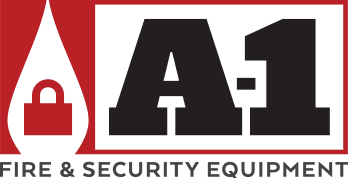
Developed to detect fires promptly as they grow, fire detection systems are an extremely valuable fire protection tool for any establishment. Early detection is crucial in the protection of first responders and other emergency response personnel as they combat fires.
With fire detection systems, appropriately loss can also be significantly reduced. Downtime for business operations can be decreased. Fire control efforts can get started while the fire is not massive yet.
Most fire alarm systems equipped with fire detection features can provide necessary information to first responders and emergency response personnel, such as where the fire is located – which can hasten the control of fire.
Fire Detection and Alarm Systems
For fire detection systems to be ultimately effective, they should be integrated with alarm systems. Fire alarms play an important role in notifying the building occupants or residential inhabitants that there’s a fire emergency. Most fire alarms also send a signal to a central monitoring station that can either be on or off-site. Otherwise, alarms directly transmit a message to the local fire department.
Conventional fire alarm systems don’t have fire detection capabilities. These alarms have the manual pull levers and only triggers a local alarm. An individual must discover the fire so he or she can turn the fire alarm on. This scenario causes a significant amount of delay. Most importantly, it could mean the difference between life and death.
Early Fire Detection
Fires can spread very quickly. Before you know it, a small flame grows into a massive blaze in minutes. Thus, commercial establishments, even residential properties, should have a proper emergency plan, including incorporating fire safety and protection protocol.
While fires can generally spread quickly, some other fires start because of heavy periods of dormant fires. In such cases, highly sensitive fire detection systems must be in place.
The truth of the matter is, the quicker you want to detect a fire, the more expensive the fire detection system is going to be. For instance, heat detectors are the least costly fire detection tool.

At the other end of the spectrum, an air-aspirating fire detection system offers the quickest detection of fire, but they are going to be ten times more expensive than a regular heat detector.
However, when you look at the bigger picture, nothing is more important than securing the safety of your building occupants during an emergency. Thus, look at it like this: when you invest in an effective and reliable fire detection system, you’re investing in safety, life, and protection of your assets.
Choosing a Detection System
If you’re wondering where to start when selecting a fire detection system for your establishment, take a look at your fire safety and protection objectives. Your objectives must have stemmed from a comprehensive risk assessment of your property and business operations. You must also factor in your forbearance for risk, how much risk you can take, and how you’re going to be dealing with it.
For instance, the fire safety and protection objectives of a hospital or assisted living facility are going to be the difference from an industrial warehouse. In healthcare establishments, people will not be able to evacuate by themselves.

Thus, highly sensitive fire detection systems that can detect fires at the earliest is absolutely crucial. Additionally, buildings such as hotels, dormitories, bed and breakfasts, and other hospitality establishments where the inhabitants may be sleeping also need rapid fire detection.
On the other hand, in a warehouse or factory, the building inhabitants will mostly be awake, active, and often fewer. Thus, more rapid fire detection systems are not as required. Still, fire detection is a crucial consideration that property managers should keep in mind.
Inspection, Maintenance, and Testing of Fire Detection Systems

When choosing a fire detection system, you must also factor in the inspection, maintenance, and testing of the system. There are inspection and testing requirements laid out by the National Fire Protection Association that we must follow. The NFPA 72® National Fire Alarm And Signaling Code® enumerates the proper installation, application, maintenance, and testing of fire detection and alarm systems.
Important Note
Whatever fire alarm and detection systems you choose, it’s important to note that these systems need monthly, annually, and semi-annually inspection, care, and maintenance. Know what the requirements in your local jurisdiction and make sure that you comply with them.
